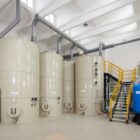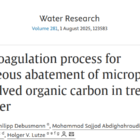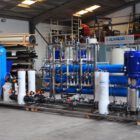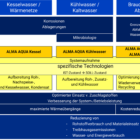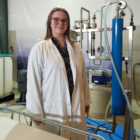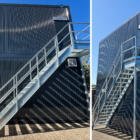Precipitation
Precipitation, also known as precipitation, is a chemical process in which dissolved substances in a liquid are converted into a solid phase by chemical reaction. These solids, known as precipitates, can then be removed from the water or wastewater by sedimentation, filtration or flotation. Precipitation is one of the


